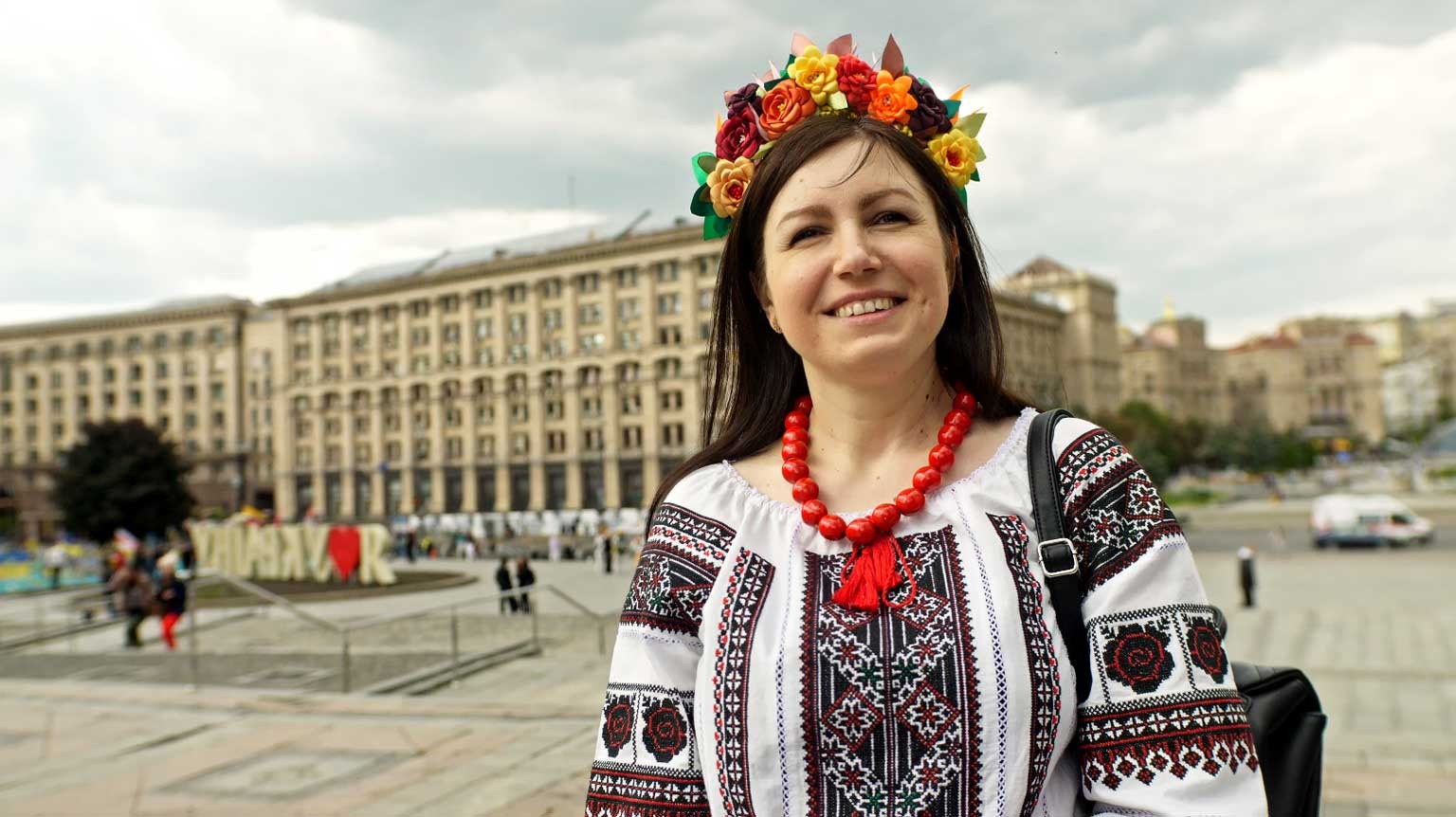"I try to wear mine once a week," reveals one man in the center of Kyiv. "Not only on holidays, but at work, too. It's a symbol of being Ukrainian, and fighting for freedom and democracy."
"Since the invasion, I’ve learned more about the shirt's heritage, and how an authentic vyshyvanka should look," says a young woman in the capital. "So now I'm wearing a more traditional one."
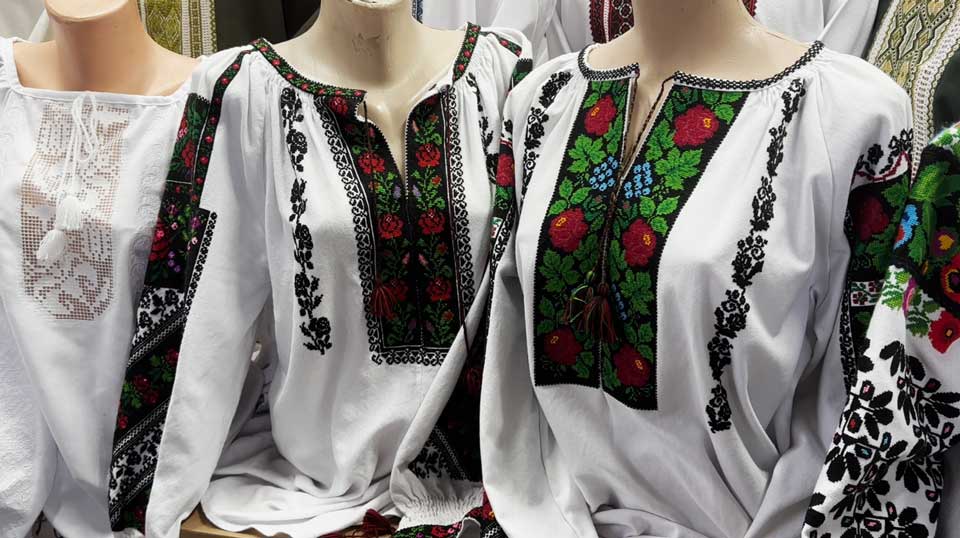
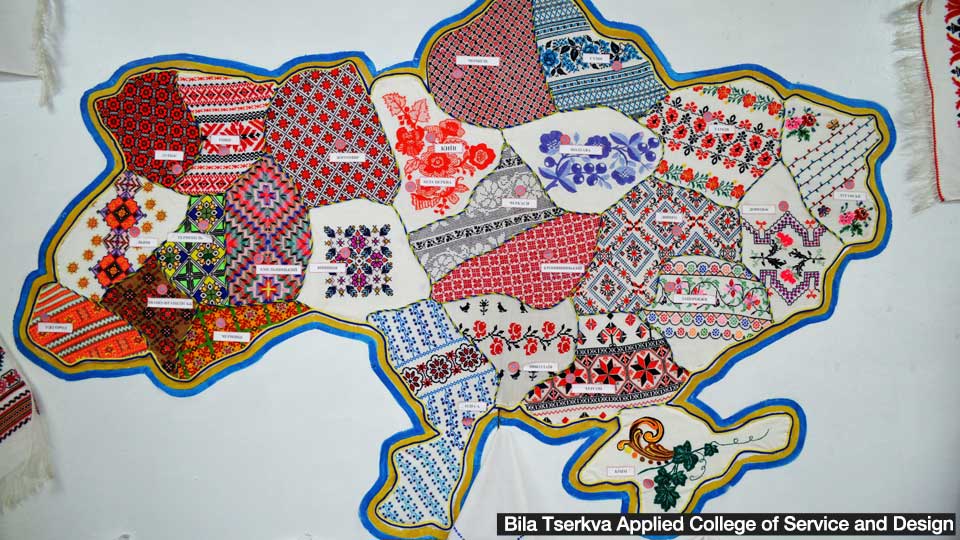
Many people typically wear vyshyvanka on special occasions, and of course for Vyshyvanka Day which falls on the third Thursday in May. But now, they're a lot more common year-round.
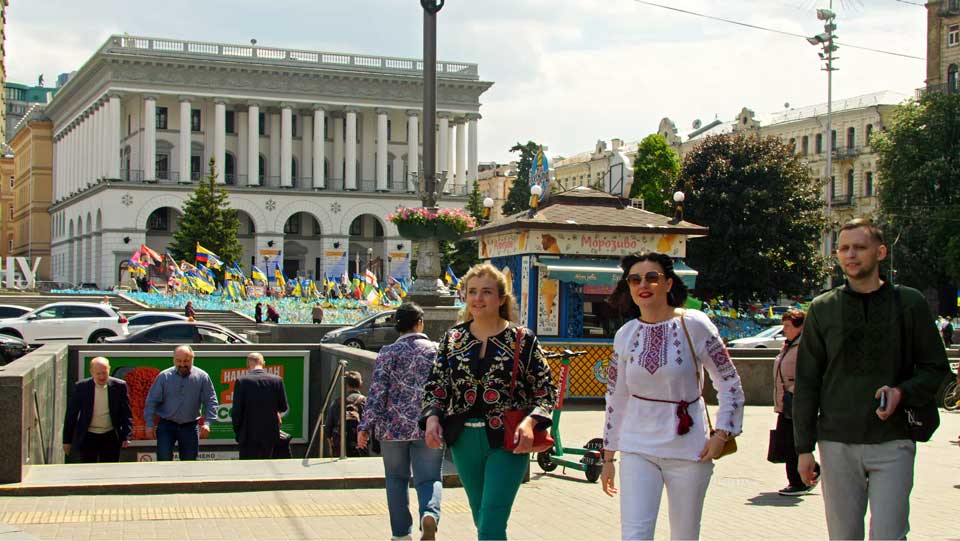
Culture at risk of Russification
A clerk at a vyshyvanka store in Kyiv reveals sales have surged.
And that probably shouldn't come as a surprise.

Ukrainians know their country is under threat from more than just artillery. Occupied areas are undergoing so-called ‘Russification' which entails the vanishing of anything Ukrainian.
"If someone tries to take something that belongs to you, you'd probably start to think of it as more special, and try to protect it," says 28-year-old Kyiv resident Liudmyla Kravchenko.
"Right now, Russia is trying to steal our identity. And what is our identity? The vyshyvanka."
Kravchenko has even started learning how to make them herself.
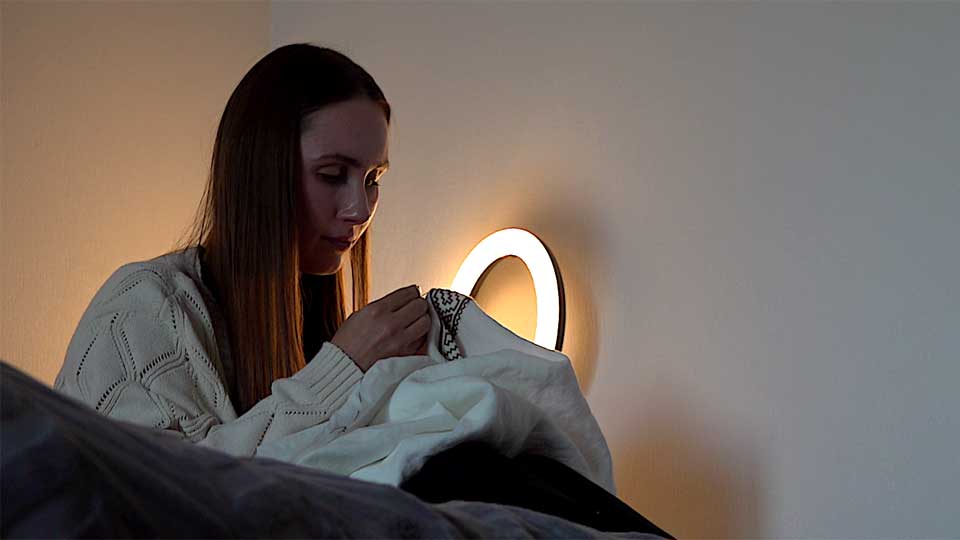
"My husband didn't have one, and I only had an old one made by my grandma," she says. "The embroidery sort of saved me. Instead of thinking about the war, I'm concentrating on understanding the patterns."
Another resident of Kyiv, Polina Honta, says she got her first vyshyvanka after the invasion and now tries to wear it on a daily basis.
"This represents my identity," says the 27-year-old. "Some people used to see them as unfashionable, something for country folk. But now, people want to rewrite the vyshyvanka's history as something cool."

Helping evacuees in Japan
There are similar sentiments among Ukrainians abroad.
Valentyna Yamazaki lives with her husband and three daughters in Odawara, a town about 70 kilometers from Tokyo.
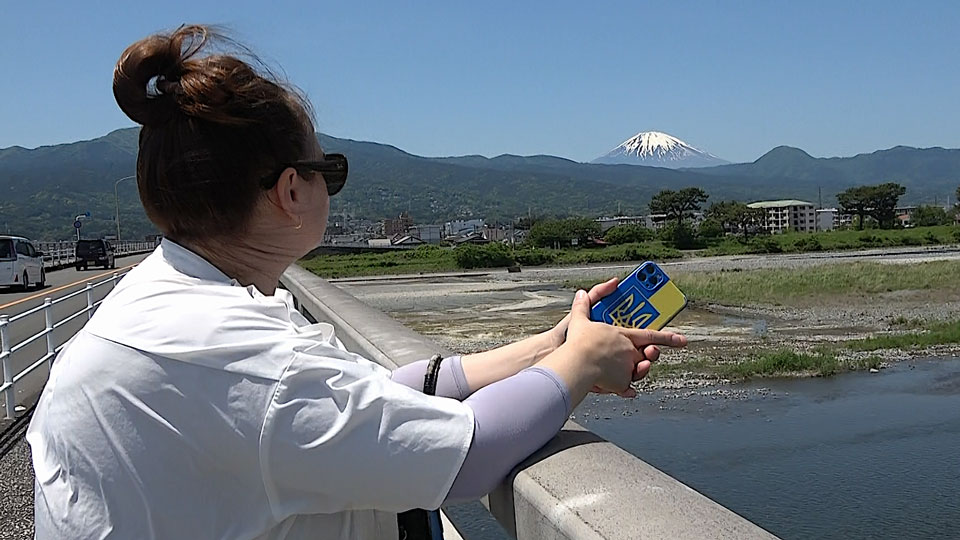
She has been in Japan almost 20 years, and started making vyshyvanka after the start of Russia's invasion.
"Ukrainians started fleeing here, and I wanted to give them a piece of their homeland," she says.

Yamazaki has made about 10 vyshyvanka over the past year, but getting to know her fellow Ukrainians isn't always easy.
"One evacuee asked me to embroider a dress with a barley pattern. But when she saw it, she said it made her homesick. So she asked me to sell it and donate the proceeds to Ukraine."
Yamazaki is acutely aware of the pain they're going through.
"I lost my cousin on the battlefield last year. It's so hard to hear about my childhood friends dying like this. I'll never see nearly half the people I grew up with again.
"By making vyshyvanka I'm not only making someone happier, but also supporting Ukraine and sharing our culture with Japan. Right now, I feel as if my whole being is in this embroidery."
Yamazaki says she has made a vyshyvanka for each of her daughters, because she wants them to feel just as much Ukrainian as Japanese.
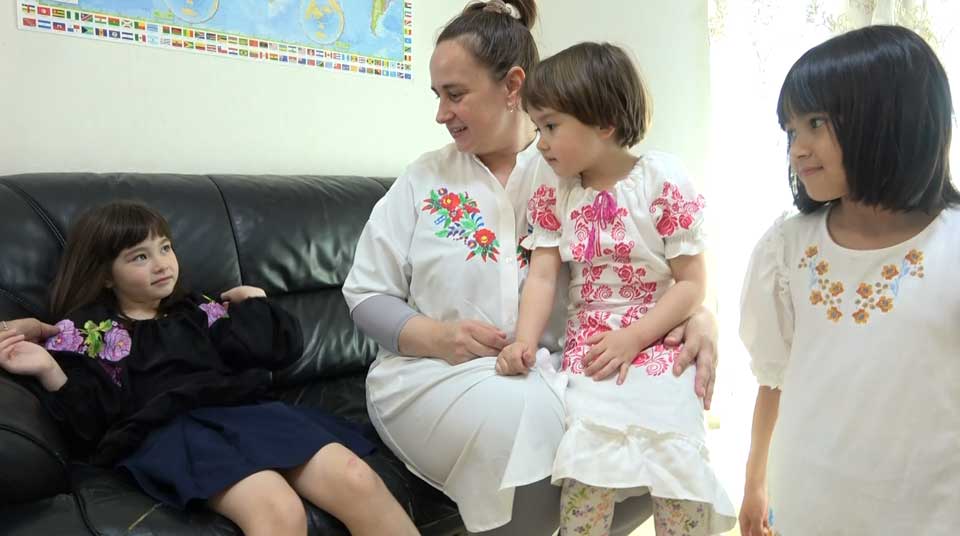
And she took one to a café in Tokyo where Ukrainian evacuees have been able to land a job. It's a gift for the Ukraine ‘Mental Health' Interaction Center, which got the business up and running.
"Thank you," says Ukiyo Mariko, a representative of the organization. "This is amazing! Vyshyvanka aren't well known in Japan. But I hope that changes soon."

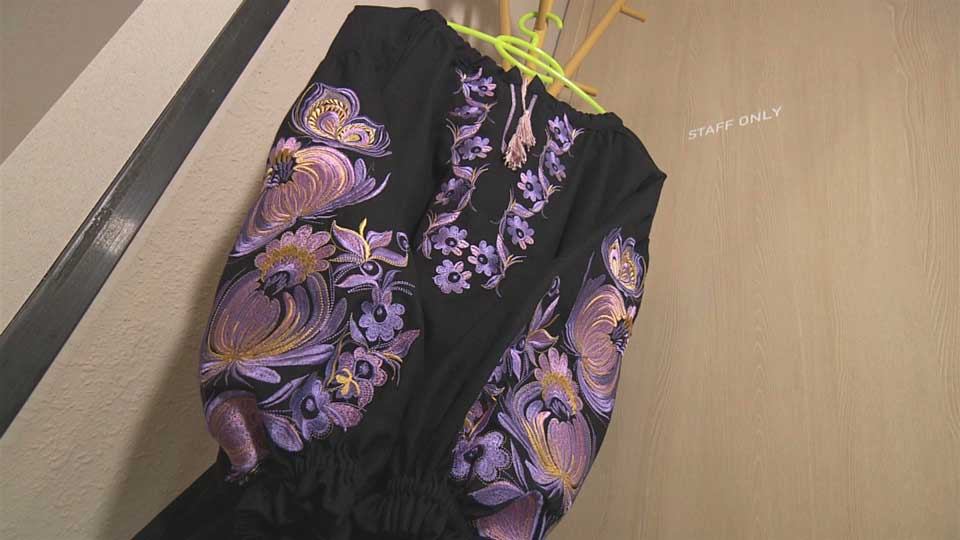
Yamazaki is far from her homeland, but she has found purpose in doing her bit.
"I think I have to show the whole world what Ukraine is, and who we are. This is my chance to show that we are a strong, independent state with our own culture and traditions.
"And of course, beautiful clothes."
